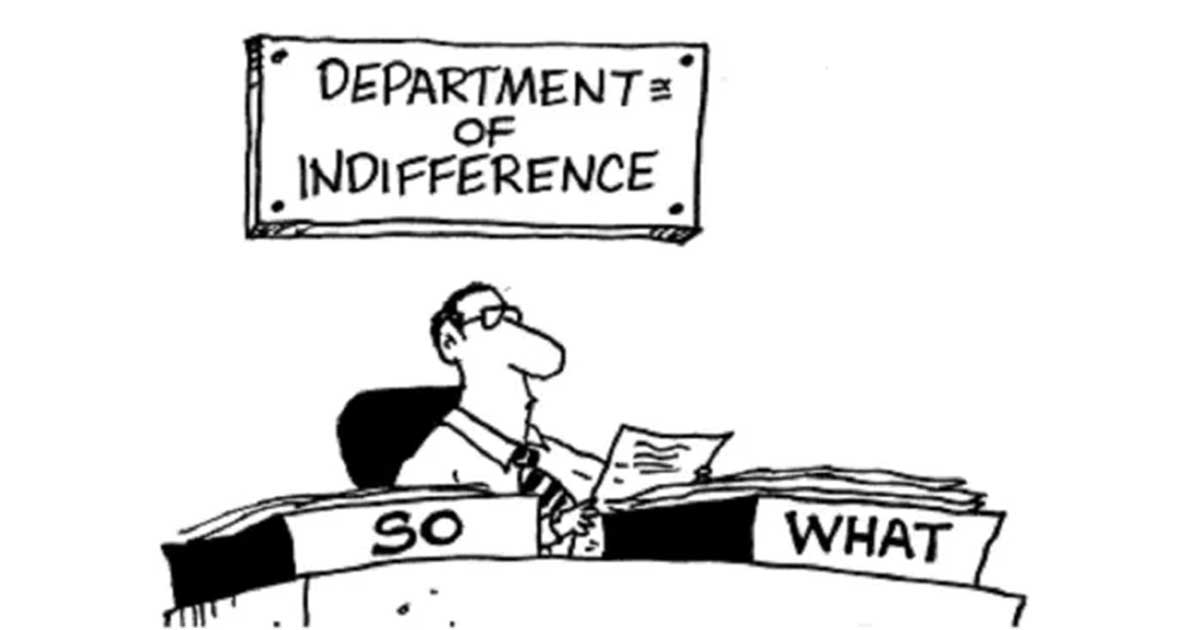No matter how challenging life might be for us, there is always light at the end of the tunnel as long as we still care. A lady in a support group that I belong to recently confessed to me that she ‘just can’t be bothered’. We were talking about our motivation to live our best life and what we need to do to make that happen. I explained that healthy eating, restful sleep, regular exercise and avoiding toxic substances such as alcohol helps to keep me on track. I don’t find it a struggle to do any of these things because I am motivated. I am not yet reaching for the stars or working to my full potential, but I am working towards it and in the meantime, achieving a sense of peace inside because of the positive changes in how I feel. One of things I value the most right now is how my children are responding to the love and support I am able to give them. This is reason enough for me to strive to do better.
Can you be bothered?
It has been playing on my mind though, the idea of apathy. Because it’s apathy, isn’t it, that makes a person shrug their shoulders with statements such as ‘who cares’, or ‘I can’t be bothered’. I wonder how many others out there feel this way. Apathy can be a normal response to disappointment, and God knows there’s been plenty of that about lately because of COVID-19. People have lost family members, others lost their jobs, businesses have folded, weddings cancelled, funerals unattended, holidays postponed, and social events have been drastically reduced. There is much uncertainty about the future that makes people fearful, no wonder they feel stressed. I thought it might be helpful to dig a bit deeper into the concept of apathy and see what can be done about it. I believe it’s a precursor to depression and therefore important to face it head-on. If a person can’t be bothered to do something that they know will benefit them, then they are putting themselves at risk of sinking into an even unhappier place. Do you ever find that you are only doing the bare minimum to get by, and therefore sabotaging your sense of satisfaction in life?
Living in autopilot
There are many words that help to illustrate apathy. One of these is indifference and is possibly the most damaging as indifference can destroy relationships. While we might complain that our partner is argumentative and refuses to see our point of view, at least they are communicating with us. When a person is apathetic, they switch to autopilot by no longer engaging with those around them. The resulting indifference leaves a hole where once there was emotion. It’s this lack of emotion that negatively impacts on a relationship because it makes a person feel as though the other doesn’t care about them. The indifferent party is suffering inside but they are not dealing with what’s really going on for them. It’s as though they are experiencing a disconnected numbness that prevents them from feeling their own pain and the pain of others. According to the American writer, John Dos Passos,
Apathy is one of the characteristic responses of any living organism when it is subjected to stimuli too intense or too complicated to cope with.
I know all about this. I have written about my son’s accident before, and the horrible trauma we experienced as a family. The only way I could cope in the months after that event was by numbing the pain with alcohol and living my life in autopilot. I had to get out of bed each morning to look after my children but my dreams and goals for the future were no longer in sight. I had lost my joie de vivre.
Re-finding our passion
The opposite of an apathetic person is one who is passionate or enthusiastic about something, however humble that something is. It doesn’t really matter what anyone else thinks about your life, if you don’t feel the spark inside then your life is lacking. So, how do we find our spark? Last week I talked about decluttering as a way of clearing a space so that healing can take place. But there are other ways we can add some spark to our lives. John Dos Passos went on to say that the cure for apathy is comprehension. We must first understand where the apathy is coming from and challenge the thinking behind it. You see, apathy is primarily a stance we take on life, an attitude that we adopt that shapes our perspective. If we are curious, we can pick that attitude apart and we may well discover that we have made certain assumptions about the future based on falsehoods we told ourselves in the past, such as I am useless, or I am doomed to fail. I’ve been thinking a lot about the stuff we tell ourselves. I am beginning to realise just how dangerous it is to allow those thoughts to turn into feelings. They pass from the conscious mind into our subconscious mind and come back to haunt us time and time again. The sub-conscious mind is like a vessel that is filled from our thoughts and feelings about life. It loyally guards these messages for us as though they are sacred to us and seeks to confirm them back to us at any given opportunity. Part of the solution is to become aware of the things you tell yourself and make sure they are reflective of what your heart truly desires. By applying some self-compassion and forgiveness, we can rewrite the messaging that eventually settles into the sub-conscious mind.
Setting goals
Apathy can be conquered by goalsetting. No matter how futile it might seem, when we address our desires, we find a motivation. But it’s important to go lightly. We are all at risk of setting unrealistically high goals for ourselves that end up causing us more grief than they’re worth. Instead, we need to be kinder and take it in our stride to achieve more realistic goals. Goals don’t have to be grandiose. Any goal that makes us feel motivated is good, whether it’s to start playing the piano again after a break of 20 years or finding time every day to do something for you, something you may have once loved to do but have let fall by the wayside. A simple goal such as de-cluttering a part of our home can be hugely cathartic and can give us a refreshed perspective on life. Taking the time to think about these things and writing them down is really helpful as it awakens in us some of the happier times we have forgotten about.
You’ve got to care
Imagine a world where people don’t care about each other anymore. We might think it’s a crazy place these days, but by God, it is full of people who do so much good for humanity. And much of it is done out of pure love, without any expectation of reward. One of the hardest truths I have had to face up to is this: if I don’t care about myself, it is less likely that others will care about me. This concept might seem like a no-brainer to many, but for whatever reason, I never quite grasped it and missed the point completely. I wondered why other people didn’t seem to care about me! I now see clearly, thanks to the journey I took into myself, that when I am compassionate and forgiving of myself and others, the response I get from those around me is heart-warming. Self-care is essential to our wellbeing and to ensure we give the best of ourselves to the world. There have been times recently when I’ve thought that I was being selfish because I spend so much time thinking about me, but it’s the only way to truly understand the whys and wherefores of our lives. As Socrates said over two thousand years ago ‘A life unexamined is not worth living.’ By going within, I am learning about who I am, I am more aware of how I am, and I am able to choose how I feel about the way things are unfolding. We must never lose hope in the fact that we can be happy and fulfilled, no matter what is happening in the world around us. We must maintain faith in our ability to achieve whatever goals we set for ourselves because those goals remind us that we all have a place in this crazy world, that each of us matters.
Never stop caring.
Thanks for reading this far.

